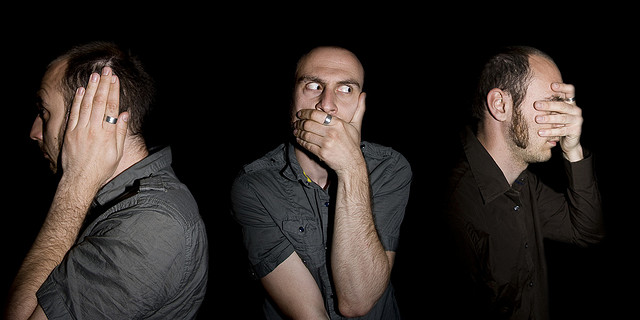1. Branding is about making money – not making you feel good.
Last year’s “The Lone Ranger” was a box-office flop. Its star Johnny Depp commented,
“They had expectations that it must be a blockbuster. I didn’t have any expectations of that. I never do.”
Maybe Depp doesn’t care, but Disney surely does, having lost $160-190 million on it! Nevertheless, they’d hire Depp again. He is a reliable moneymaker, having starred in 58 feature films and with a total worldwide box office gross of $7.6 billion.
They’d hire Mark Wahlberg too, sight unseen, I bet. He’s done 40 movies and they’ve earned $3.5 billion globally.
Kim Kardashian is a reliable moneymaker as well. She gets $29 million a year from her various branded activities and endorsements.
People may gravitate to brands for emotional reasons, but branding itself is a very unemotional and even scientific activity.
2. You’ll have to give something up every day.
People often think of a brand as something you “get.” The truth is that branding is something you do, in the hope of getting it right, and in the process you’ll be giving up quite a bit.
If celebrities can undergo grueling workouts, multiple plastic surgeries, and humiliating debates over how they should behave and where they should be seen – then you can agree to use a single logo, tagline and set of brand messages all the time. It’s not that difficult if you have the discipline.
3. You can’t keep changing your mind.
Speaking of discipline. Business owners tend to have irrationally fixed ideas in their minds about certain things – like how to run the company – but to change their minds frequently about others. One of those “others” is communication, because it doesn’t feel like a very big deal to say different things over time.
That’s a bad thing. Branding requires you to be consistent.
4. Everyone involved has to get onboard.
Normally there are some people who are very much on board with the brand and who support it all the way, and others who totally hate it. Then there’s a middle “I don’t care either way” group, which is willing to do what they superficially must but aren’t deeply invested.
For a brand to really work, everyone must be passionately in love with it. Yes, you heard me – in love! They must love it! You must cradle it like it’s your baby.
If you don’t, it’s going to fall apart and become a meaningless construct.
5. You can count on people to get in the way.
This is probably the most difficult aspect of branding really well. At some point there will be people who not only don’t support the brand, but actively do things to take it down.
- A competitor.
- A partner with a different vision.
- Employees who don’t like change.
- Negative public reaction.
Whoever the audience and whatever the objection, it is up to the brand owner to have a plan to manage human interference with respect to the brand, by:
- Giving people methods with which to comply, such as templates for employees with guidelines for use.
- Outreach to make people aware of the brand and what it means.
- Creative engagement with constructive critics.
- Adjusting course when you’re getting accurate negative feedback.
- Removing people from the team who can’t get themselves onboard with the mission.
A crucial and often overlooked member of the brand management team is legal counsel. Lawyers help business owners effectively protect the brand and the company’s reputation, which are in the end its most precious assets.
Dannielle Blumenthal (@thinkbrandfirst) is a seasoned communications professional with nearly two decades of progressive, varied experience in the public sector, private sector, and academia. Currently she is a public servant, as well as an independent freelance writer. This blog, like all of her public content, is written in her personal capacity unless otherwise noted. It does not reflect the views of the U.S. government, in whole or in part. Photo by Steven Mileham via Flickr.





Leave a Reply
You must be logged in to post a comment.